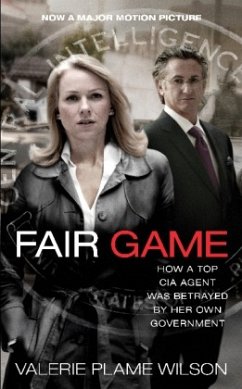In 2003, four months after the U.S. invasion of Iraq, former ambassador Joseph Wilson's op-ed, "What I Didn't Find in Africa," appeared in The New York Times. A week later, conservative pundit Robert Novak revealed in his newspaper column that Ambassador Wilson's wife, Valerie Plame Wilson, was a CIA operative. The public "outing" would spur a federal investigation and the eventual conviction of Vice-Presidential Chief of Staff Scooter Libby. The repercussion of her cover being blown, taking place in the glare of the public spotlight, put extreme stress on Valerie Wilson, her husband and young twins, and the strength of her marriage. Much of what was reported about them was frighteningly accurate; some was completely false.
In "Fair Game", Valerie Plame Wilson sets the record straight, providing an extraordinary account of her training and experiences, her covert status, her responsibilities, and her life. As readers will see, the CIA still deems much of the detail of Valerie's story to be classified, even though much of it is now a matter of public record. As a service to readers, national security reporter Laura Rozen has written an afterword that provides a context for Valerie's own story.
In "Fair Game", Valerie Plame Wilson sets the record straight, providing an extraordinary account of her training and experiences, her covert status, her responsibilities, and her life. As readers will see, the CIA still deems much of the detail of Valerie's story to be classified, even though much of it is now a matter of public record. As a service to readers, national security reporter Laura Rozen has written an afterword that provides a context for Valerie's own story.

